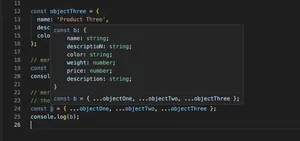Introduction
TypeScript enhances JavaScript by adding type annotations and other sophisticated features which help in the development of large-scale applications. Understanding how to declare and use callback function types is key for asynchronous operations which are prevalent in today’s web development landscape.
What is a Callback Function?
In programming, a callback function is a function passed into another function as an argument, which is then executed inside the outer function to complete some kind of routine or action. In TypeScript, the types of these functions can be explicitly declared for better code maintainability and to prevent runtime errors.
Basic Callback Function Declaration
Let’s start with a simple example of how to declare a callback function type in TypeScript:
function greeter(fn: (a: string) => void) {
fn('Hello, World!');
}
function printToConsole(s: string) {
console.log(s);
}
greeter(printToConsole); // Output: 'Hello, World!'
In this snippet, the greeter function takes a callback (fn) which accepts a string argument and returns nothing (void). It then calls this callback with a greeting message.
Using Interface for Callback Types
You can also define a callback type using an interface:
interface StringCallback {
(text: string): void;
}
function greeter(fn: StringCallback) {
fn('Hello, TypeScript!');
}
function printToConsole(s: string) {
console.log(s);
}
greeter(printToConsole); // Output: 'Hello, TypeScript!'
This approach may be preferable when you have a complex type or want to reuse the callback definition in multiple places in your codebase.
Typing Callback with Generics
To create a flexible callback that works with any type of parameter, you can use generics:
function process(value: T, callback: (arg: T) => void): void {
callback(value);
}
process('Hello, Generics!', console.log); // Output: 'Hello, Generics!'
In this generic function, process accepts a value and a callback that is typed to accept one argument of type T, which corresponds to the type of value provided.
Defining a Callback Signature with Multiple Parameters
You can declare a more complex callback with multiple parameters like this:
function greeter(fn: (name: string, age: number) => void) {
fn('Alice', 30);
}
function userInfo(name: string, age: number) {
console.log(`Name: ${name}, Age: ${age}`);
}
greeter(userInfo); // Output: 'Name: Alice, Age: 30'
This example shows a greeter function that takes a callback which expects two parameters: name and age.
Error Handling in Callbacks
When we deal with asynchronous operations, it’s important to handle possible errors in callbacks. You might want to define a type for a callback that can handle an error object as its first argument:
function readFile(path: string, callback: (err: Error | null, data: string | null) => void) {
// Simulating file read operation with a 50/50 success/error
const success = Math.random() > 0.5;
if (success) {
callback(null, 'Successfully read file.');
} else {
callback(new Error('Failed to read file.'), null);
}
}
readFile('path/to/file', (err, data) => {
if (err) {
console.error(err);
} else {
console.log(data);
}
});
This demonstrates how one can handle both success and failure when performing an action that could potentially result in an error.
Advanced: Using this Parameter
In some complex scenarios, you might need to ensure that the this context in the callback is of a specific type. TypeScript allows declaring this within the function’s type signature:
interface Context {
data: string;
}
function processWithContext(fn: (this: Context, suffix: string) => void) {
const ctx = { data: 'Processed with context' };
fn.call(ctx, 'successfully.');
}
const ctx = {
data: 'My context',
print: function(suffix: string) {
console.log(`${this.data} ${suffix}`);
}
};
processWithContext(ctx.print);
Note the usage of fn.call to bind the correct this context to the callback function.
Best Practices and Tips
- Always define the most accurate type signature for your callbacks to take advantage of TypeScript’s type system.
- Consider using interfaces or type aliases for callback types when they will be reused throughout your code.
- For better readability and maintenance, prefer named interface or type definitions over inline type declarations.
- When appropriate, use generics to create highly reusable functions with typed callbacks.
Conclusion
Declaring callback function types in TypeScript can greatly improve your code’s reliability and maintainability. By utilizing TypeScript’s powerful type system, you can define precise callback signatures that align with your application’s requirements, making it easier to detect issues during compilation rather than runtime. Remember to employ these practices regularly to write more robust TypeScript code.
